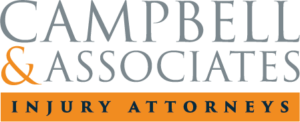Call Today
704-333-0885
Punitive Damages in North Carolina (Part 1)
This is “Part One” of a two-part article regarding the law of punitive damages in North Carolina. An understanding of the law governing punitive damages in North Carolina is always helpful in evaluating a claim. The threat of a legitimate punitive damage claim will typically increase the case value significantly. The first part of this article is meant to give a basic understanding of what it takes to recover punitive damages under Chapter 1D of the North Carolina General Statutes. Chapter 1D solely governs punitive damage claims and applies to all claims regardless of whether they are based on a statute, common law or in equity. See N.C.G.S. §1D-10. The purpose of punitive damages, as laid out in 1D-1, is to punish the defendant for egregiously wrongful acts and to deter the defendant and others from committing similar wrongful acts. (Emphasis added.) The “and others” section of this statute is important. It empowers the jury to make a statement; not only to the particular defendant, but to the citizens and residents of the county in which the case is tried and to the residents of North Carolina as a whole. Typically, civil courts are meant to put the plaintiff in a similar position as he or she was before the accident or incident occurred. The criminal courts are usually the venue where defendants are punished. Punitive damages are an exception to this basic tenant.
What is an “egregiously wrongful act”? In order to pursue a claim for punitive damages, there must be willful, wanton or malicious conduct on the part of the defendant. Simple gross negligence is not enough. Willful conduct, as defined under Chapter 1D-5(7), means the conscious and intentional disregard of and indifference to the rights and safety of others, which the defendant knows, or should know, is reasonably likely to result in injury, damage or other harm. Malice is defined as a sense of personal ill will toward the claimant that activated or incited the defendant to perform the act or undertake the conduct that resulted in harm to the claimant. See N.C.G.S.§ 1D-5(5). Fraud can also be a basis for punitive damages.
Punitive damages may be awarded only if the claimant proves that the defendant is liable for compensatory damages first. The willful, wanton or malicious acts must be related to the injury for which compensatory damages were awarded and must be proved by clear and convincing evidence. See N.C.G.S. §1D-15(b). This standard of proof is higher than the “more likely than not” or “greater weight of the evidence” standard typically used in civil cases. Punitive damages shall not be awarded against a person solely on the basis of vicarious liability for the acts of another, unless that person participated in the conduct. Corporations could be subject to punitive damages if officers, directors or managers actively participated in or condoned the aggravated conduct of an employee. See N.C.G.S. §1D-15(c).
In the next part of this article, I will focus on specific acts that have been deemed egregious under North Carolina law and look into how punitive damages are presented at trial and the limitations on them. At Campbell and Associates we have the experience and knowledge to assist you in assessing your claim for potential punitive damages. Please call 704.333.0885 24 hours a day, 7 days a week for a free consultation.
FREE AND CONFIDENTIAL CASE REVIEW
We want to hear your story, so we can help.
Call Today
704-333-0885



Membership in the Million Dollar Advocates Forum is limited to attorneys who have won million and multi-million dollar verdicts and settlements. You can find the criteria for membership in the Million Dollar Advocates by clicking here. Campbell & Associates Personal Injury Firm does not represent or claim that similar results will be achieved in your case.
The National Trial Lawyers is a national organization composed of the Top 100 Trial Lawyers from each state. Membership to the organization is obtained through special invitation and is extended only to those attorneys who exemplify superior qualifications, leadership, reputation, influence, stature, and profile as trial lawyers, both civil plaintiff and criminal defense. For more information on the National Trial Lawyers organization click here. Campbell & Associates Personal Injury Firm does not represent or claim that similar results will be achieved in your case.


